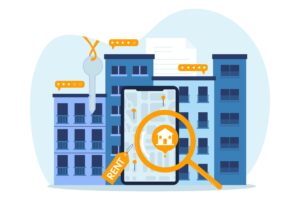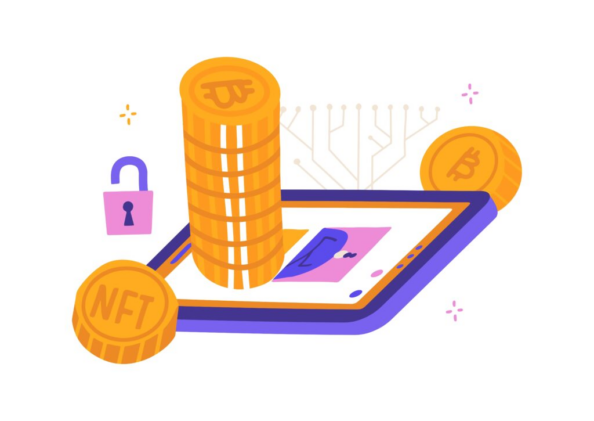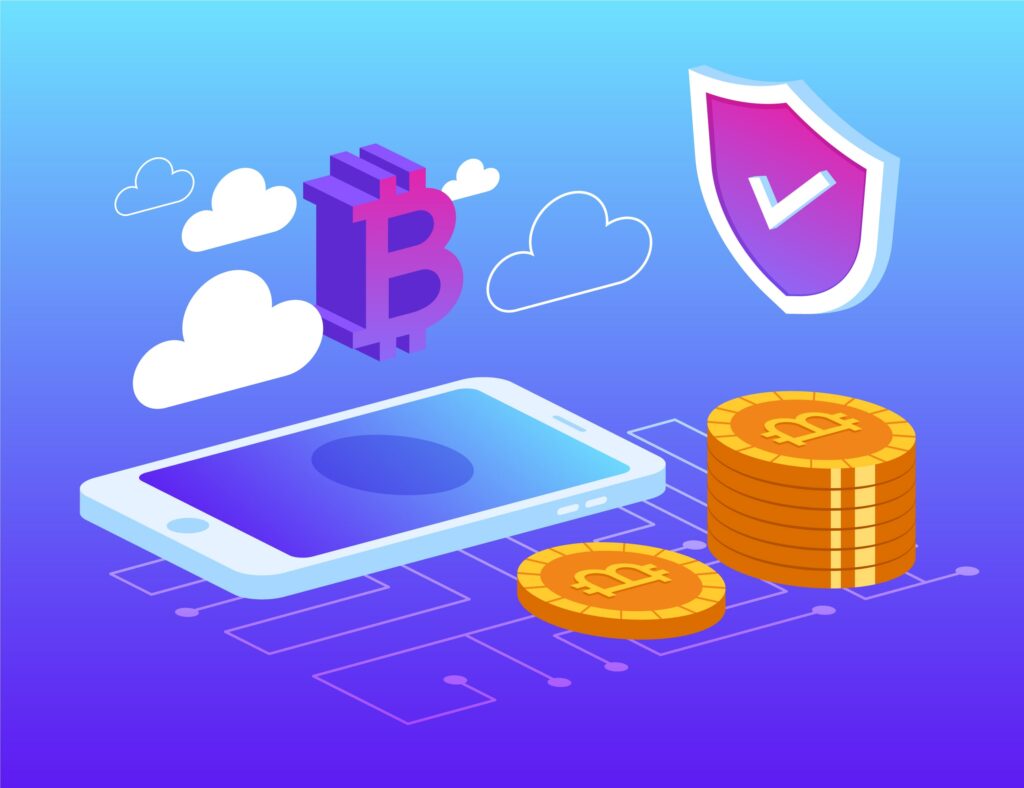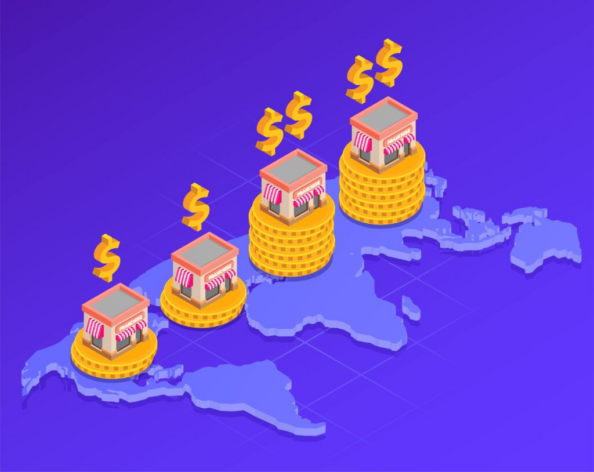
In recent years, a groundbreaking innovation has emerged in the real estate industry that is reshaping the way we perceive property ownership and investment. This disruptive force is none other than real estate tokenization, a technology that leverages blockchain and cryptocurrencies to unlock new opportunities and efficiencies in the market.
Tokenization, in essence, involves the process of transforming real estate assets into digital tokens. These tokens represent fractional ownership rights or shares in a property, enabling investors to buy, sell, and trade these tokens on secure and transparent blockchain platforms. By breaking down large real estate assets into smaller, more affordable units, tokenization democratizes access to lucrative investment opportunities that were previously reserved for institutional players or wealthy individuals.
This article delves into the world of real estate tokenization, exploring its underlying technology, benefits, and potential implications for the industry. We will examine how tokenization enhances liquidity, improves transparency, reduces costs, and unlocks previously untapped markets.

The tokenization of real estate involves converting physical properties into digital tokens using blockchain technology. These tokens represent fractional ownership shares in the property and can be bought, sold, and traded on blockchain platforms.
This process brings several benefits to the real estate industry. Firstly, it enhances liquidity by enabling faster and more efficient transactions. Tokenization eliminates the need for intermediaries, reducing paperwork and costs associated with traditional real estate transactions.
Transparency is another advantage. Blockchain’s immutable nature ensures that all ownership details and transactions are recorded and easily accessible. This transparency builds trust among investors and helps prevent fraudulent activities.
Real estate tokenization also expands investment opportunities. Fractional ownership allows smaller investors to participate in lucrative markets that were previously inaccessible. Diversification becomes easier, as investors can hold shares in multiple properties across different locations and types.
However, it’s crucial to understand the regulatory landscape. Each jurisdiction has its own rules and regulations governing tokenization. Compliance with these regulations is vital for investors and developers to ensure legal and secure transactions.
The tokenization of real estate is revolutionizing the industry. It offers increased liquidity, transparency, and access to investment opportunities. As the technology advances and regulations evolve, real estate tokenization is set to transform the way we engage with properties, making it a significant development in the world of real estate investment.
Real estate tokenization continues to gain momentum in 2025, transforming the way individuals and institutions invest in properties globally. Platforms like Lufina make real estate ownership more accessible by allowing investments starting at just $50 through property NFTs, which can even be used as collateral for loans. High-profile tokenization projects such as the Aspen Resort at St. Regis—tradable on the tZERO exchange—demonstrate how blockchain-based security tokens are reshaping luxury hospitality investments. Meanwhile, companies like RealT enable fractional ownership of rental properties, ensuring global investors receive passive income in cryptocurrency. Other notable players include Propy, which tokenized a San Francisco office building, and Red Swan, which brought a $500 million New York commercial portfolio onto the blockchain. As Smartlands and Blockimmo expand their regulatory-compliant offerings across U.S. and European markets, the industry continues to evolve, reinforcing tokenization as a game-changing approach to real estate investment.

Tokenizing your property can bring numerous advantages and open up a world of opportunities in the real estate market. Here are compelling reasons why you should consider tokenizing your property:
Tokenization allows fractional ownership, breaking down your property into smaller units that can be easily bought, sold, and traded on blockchain platforms. This enhanced liquidity opens the door to a wider pool of potential investors and reduces the time and costs associated with traditional real estate transactions.
By tokenizing your property, you can attract a broader range of investors, including retail investors who may not have had the means to participate in real estate investments before. This diversification of investors can enhance the stability and resilience of your investment.

Tokenization eliminates intermediaries and reduces paperwork, making the buying and selling process more efficient. This streamlined approach leads to quicker transactions and lower transaction costs, benefitting both buyers and sellers.
With tokenization, your property can reach investors from around the world. Blockchain platforms enable seamless cross-border transactions, opening up international markets and increasing the exposure of your property to a global audience.
Blockchain technology ensures transparency and security by recording all transactions and ownership details on an immutable ledger. This level of transparency helps build trust among investors and reduces the risk of fraud.

Tokenizing your property allows you to diversify your investment portfolio by fractionalizing your asset and investing in multiple properties. This diversification strategy can help spread risk and potentially increase returns.
It is important to navigate the regulatory landscape when tokenizing your property. However, by working within the legal frameworks and complying with regulations, you can ensure a secure and compliant investment environment.
Real estate tokenization is a revolutionary concept that leverages blockchain technology to transform tangible real estate assets into digital tokens. This process enables fractional ownership, liquidity, and enhanced accessibility in the real estate market.

At the heart of real estate tokenization are smart contracts, which are self-executing contracts with the terms of the agreement directly written into code. Smart contracts automate and enforce the rules and conditions of token transactions, ensuring transparency, accuracy, and trust. These contracts reside on a blockchain network, such as Ethereum, and are executed when predetermined conditions are met. In the context of real estate tokenization, smart contracts facilitate the issuance, distribution, and transfer of digital tokens representing fractional ownership in a property. They also define the rights, responsibilities, and benefits associated with token ownership, such as dividend distributions and voting rights within a decentralized organization.
Smart contracts execute predefined actions automatically when certain conditions are met. For example, a smart contract can be programmed to distribute rental income among token holders on a specific date each month. This feature streamlines revenue distribution, ensuring efficiency and accuracy while reducing administrative burdens.

Special-purpose vehicles (SPVs) are commonly utilized in real estate tokenization as legal entities that hold the underlying real estate asset. An SPV is created specifically for the purpose of owning and managing the property, providing a separate legal structure to protect investors’ interests. By housing the property within an SPV, the risks associated with the real estate investment are isolated from other assets and liabilities. Through tokenization, fractional ownership in the SPV can be represented by digital tokens, allowing investors to hold shares in the property indirectly. SPVs provide a flexible and efficient framework for organizing real estate assets into tradable tokens.
By utilizing an SPV structure, real estate tokenization projects can provide legal protection and clarity to investors. The ownership of the property is divided into digital tokens, representing fractional shares, which are then issued to investors. This clear and transparent ownership structure enables investors to have a direct claim on the underlying property. In the event of a dispute or liquidation, the legal framework of the SPV ensures that investors’ rights are recognized and protected.

Security token offerings (STOs) are the primary means of raising funds for real estate tokenization projects. An STO is a regulated fundraising method that involves the issuance and sale of security tokens to investors in exchange for capital. These security tokens represent ownership or investment rights in a real estate asset. Unlike initial coin offerings (ICOs), which often faced regulatory challenges due to their unregulated nature, STOs comply with securities regulations and offer legal protection for investors. STOs provide a regulated and compliant framework for tokenizing real estate assets, attracting a broader range of investors while maintaining investor protection and regulatory compliance.
By tokenizing real estate assets through STOs, fractional ownership becomes accessible to a broader range of investors. Investors can purchase and trade security tokens representing fractional shares of the property, allowing for enhanced liquidity and diversification.
STOs also enable global access to real estate investments. Blockchain technology facilitates cross-border transactions, eliminating geographical barriers and expanding investment opportunities. International investors can participate in real estate projects without the constraints of traditional investment models.

Decentralized autonomous organizations (DAOs) are entities governed by smart contracts and operated through a decentralized network of participants. In the context of real estate tokenization, DAOs can be utilized to manage the operations, decision-making processes, and governance of a property or a portfolio of properties. Token holders within a DAO can participate in voting on key decisions, such as property management, maintenance, rental agreements, or property sales. DAOs enable a more inclusive and democratic approach to property management, where stakeholders have a direct say in the decision-making process. By leveraging blockchain technology and smart contracts, DAOs provide transparency, efficiency, and decentralization in the management of real estate assets.
Decentralized autonomous organizations (DAOs) play a pivotal role in the management and governance of real estate assets in the context of tokenization. By leveraging smart contracts and blockchain technology, DAOs create a decentralized network where participants can collectively make decisions regarding the property or portfolio of properties. Token holders within a DAO have the opportunity to engage in voting processes that determine crucial aspects such as property management, maintenance, rental agreements, or property sales. This inclusive and democratic approach ensures that stakeholders have a direct say in shaping the future of the real estate asset.

Real Estate Investment Trusts (REITs) are investment vehicles that allow individuals to invest in a diversified portfolio of real estate assets without directly owning or managing properties. REITs pool funds from multiple investors to invest in income-generating properties such as commercial buildings and residential complexes. By investing in REITs, individuals gain access to the real estate market and can potentially earn regular income through dividends.
REITs are subject to specific regulations, including the distribution of a significant portion of earnings to shareholders. These tax-advantaged entities provide a convenient and tax-efficient way for individuals to invest in real estate, diversify their portfolios, and enjoy the benefits of professional management and liquidity in the real estate market.

Tokenized real estate investments have gained significant traction in recent years, presenting new opportunities and challenges within the legal and regulatory landscape. It is crucial to understand and comply with applicable laws and regulations when venturing into this space.
Securities regulations play a key role in tokenized real estate investments. In many jurisdictions, these investments may be classified as securities and subject to regulations such as registration and disclosure requirements. Compliance with securities laws ensures investor protection and transparency in the market.
Know Your Customer (KYC) and Anti-Money Laundering (AML) regulations are essential considerations. Tokenized real estate projects often require investor onboarding, and adhering to KYC and AML regulations helps prevent illicit activities and safeguard the integrity of investments.
Property ownership and legal frameworks must be navigated carefully. Transferring ownership rights to digital tokens involves understanding property laws and local regulations to ensure the validity and enforceability of tokenized ownership.
Jurisdictional considerations are important as regulations may vary across different locations.
Thorough audits provide confidence in smart contract terms, token mechanics, and other critical aspects of the investment structure. Investor protection and disclosure are paramount. Clear and comprehensive disclosure documents, along with accurate information regarding the investment opportunity, risks, and potential returns, foster trust and compliance with investor protection regulations.
Adhering to legal and regulatory considerations protects investors, maintains market integrity, and supports the successful integration of tokenization within the real estate industry.

Tokenized real estate investments offer a new and innovative way to access the real estate market. However, like any investment, taxation considerations play a crucial role. Understanding the tax implications of tokenized real estate is essential for investors and stakeholders involved in this emerging field.
When a tokenized real estate asset is sold or disposed of, any resulting capital gains may be subject to taxation. The tax rate and treatment of capital gains vary depending on the jurisdiction. It is important to consult with tax advisors to determine the applicable tax rates and any exemptions or deductions available.
Tokenized real estate investments that generate rental income are subject to rental income tax. The tax rate and treatment of rental income may differ from jurisdiction to jurisdiction. Property owners should consider factors such as deductions, allowances, and any tax incentives specific to rental income from tokenized real estate.
In some jurisdictions, the sale or transfer of tokenized real estate may attract VAT or GST. The tax treatment varies depending on the jurisdiction’s tax laws and regulations. Proper consideration of these taxes is crucial when structuring tokenized real estate transactions.

Cross-border transactions involving tokenized real estate may trigger withholding tax obligations. These taxes are typically levied on income or gains generated by non-resident investors. The applicable rates and requirements for withholding taxes depend on the jurisdiction where the tokenized real estate investment is located and the investor’s tax residency.
Tokenized real estate transactions may be subject to transfer taxes or stamp duties. These taxes are imposed when there is a change in ownership or transfer of property rights. The rates and requirements for transfer taxes vary by jurisdiction and should be considered during the tokenization process.
In some cases, tokens associated with real estate investments may have utility functions within a specific ecosystem. The tax treatment of utility tokens varies depending on the jurisdiction and their classification for tax purposes. Understanding the tax implications of utility tokens is crucial for both investors and project developers.
Tokenized real estate investments involving multiple jurisdictions may have complex international tax considerations. Double taxation treaties, foreign tax credits, and tax residency rules must be carefully considered to avoid unnecessary tax burdens.
It is important to note that tax regulations and laws regarding tokenized real estate are still evolving, and each jurisdiction may have its own unique approach. Working closely with tax professionals and legal advisors who specialize in cryptocurrency and blockchain taxation is essential to navigate the complexities and ensure compliance with relevant tax laws.

A wide range of real estate assets can be tokenized, unlocking new possibilities for investors and market participants. Virtually any type of real estate asset can be tokenized, including residential properties, commercial buildings, retail spaces, industrial facilities, hotels, and even undeveloped land.
Residential properties, such as single-family homes, apartments, or condominiums, can be tokenized, allowing investors to gain fractional ownership and participate in the rental income or potential appreciation of the property.
Commercial real estate assets, including office buildings, shopping malls, and warehouses, can also be tokenized. This provides investors with opportunities to diversify their portfolios and access income-generating properties in the commercial sector.
Additionally, tokenization extends to specialized real estate assets, such as hotels and resorts, enabling investors to participate in the hospitality industry’s potential returns.
Even undeveloped land can be tokenized, allowing investors to gain exposure to the potential value appreciation or future development opportunities.
The flexibility of tokenization enables fractional ownership, increased liquidity, and broader investor access to a variety of real estate asset classes. Tokenization brings benefits such as fractional ownership, liquidity, and access to a wider investor base, democratizing real estate investment and expanding opportunities in the market.

Commercial Tokenization is a groundbreaking approach that digitizes the ownership of commercial real estate assets while adhering to legal frameworks and protocols. Through this method, commercial properties such as office buildings, retail spaces, and industrial facilities can be tokenized, enabling investors to acquire fractional ownership through digital tokens. This innovative form of investment offers benefits like increased liquidity and accessibility to a broader range of investors.
Residential Tokenization focuses on fractionalizing ownership of residential real estate properties. It provides opportunities for institutions, asset owners, developers, and investors to participate in the residential real estate market through tokenized fractional ownership. This method enables investors to diversify their portfolios, gain exposure to the residential sector, and potentially benefit from rental income and property appreciation.
Trophy Tokenization involves the tokenization of prestigious and high-value real estate assets, often referred to as trophy properties. These properties are iconic, highly desirable, and have significant value. Tokenizing trophy assets provides a means for investors to access and invest in these exclusive properties, which may have been traditionally reserved for institutional or high-net-worth individuals. By tokenizing trophy properties, fractional ownership becomes possible, allowing a broader base of investors to participate in the potential returns and prestige associated with these exceptional real estate assets.

The tokenization process involves multiple key players who contribute to the successful implementation and execution of tokenized real estate investments.
Real estate operators are the entities or individuals who own, manage, or develop the underlying real estate assets. They play a crucial role in initiating the tokenization process by deciding to tokenize their properties. Real estate operators provide the necessary legal and financial information about the asset, ensuring compliance and transparency throughout the tokenization process.
Tokenization platforms are specialized platforms or service providers that facilitate the digitization and issuance of tokens representing ownership or investment in real estate assets. These platforms enable the creation, issuance, and management of security tokens, ensuring compliance with applicable regulations. They provide the technical infrastructure, smart contract development, and investor onboarding processes necessary for tokenization.
Investors are individuals or entities who participate in the tokenized real estate investments. They acquire tokens representing fractional ownership or investment in the real estate assets. Investors may include institutional investors, accredited investors, or even retail investors, depending on the regulatory framework and requirements. Through tokenization, investors gain access to a broader range of real estate opportunities, increased liquidity, and potential diversification benefits.

Tokenization introduces transparency to the real estate market by leveraging blockchain technology. The use of smart contracts ensures that all transaction details, including ownership rights, rental income distribution, and property management agreements, are recorded immutably on the blockchain. This transparency reduces fraud, disputes, and the need for intermediaries, resulting in faster and more efficient transactions.
Tokenization unlocks liquidity in the real estate market by enabling fractional ownership. Investors can purchase and trade tokens representing a portion of a property, allowing them to enter and exit investments more easily compared to traditional real estate investments. Tokenization opens up opportunities for secondary markets where investors can buy and sell their tokens, providing greater liquidity and flexibility.

Real estate tokenization breaks down barriers to entry, allowing small-scale investors to participate in lucrative real estate investments. Fractional ownership through tokens enables investors to access high-value properties that may have been previously out of reach due to high capital requirements. This democratization of real estate investing provides opportunities for a broader range of investors to diversify their portfolios and benefit from real estate’s potential returns.
Tokenization removes the constraints of geographic boundaries and allows investors to access real estate assets globally. Investors are no longer limited to their local markets but can explore investment opportunities worldwide. This free-flowing market enables investors to choose from a wider range of properties, diversify their portfolios across different regions, and capitalize on emerging real estate markets.
Real estate tokenization reduces counterparty risk by automating transaction processes through smart contracts. Smart contracts enforce predefined rules and conditions, eliminating the need to rely on intermediaries and reducing the risk of fraudulent activities. Tokenization also provides a clear chain of ownership and ensures that investors’ rights and obligations are protected, enhancing overall trust and reducing counterparty risk.
Real estate tokenization brings a myriad of benefits to investors, property owners, and the real estate market as a whole. From transparency and liquidity to increased access and decreased counterparty risk, tokenization transforms the way real estate is bought, sold, and invested in. As this innovative approach continues to evolve, it holds the potential to reshape the future of real estate investing, making it more inclusive, efficient, and accessible for a wide range of investors.

While real estate tokenization brings numerous benefits, it is important to consider the limitations and challenges associated with tokenized assets. Here are some key limitations to be aware of.
Smart contracts, which govern the tokenization process, are susceptible to security vulnerabilities. If there are flaws or bugs in the smart contract code, it could lead to potential exploits or breaches, putting investors’ funds and property rights at risk. Thorough security audits and testing of smart contracts are crucial to mitigate these risks.
Real estate tokenization may be subject to complex licensing requirements depending on the jurisdiction. Issuers and platforms need to navigate through legal and regulatory frameworks to ensure compliance. Understanding the licensing obligations and requirements is essential to avoid legal complications and potential penalties.
The regulatory landscape surrounding real estate tokenization is still evolving and can vary significantly across different jurisdictions. Regulations related to securities, crowdfunding, anti-money laundering (AML), and investor protection need to be carefully considered and adhered to. Non-compliance with regulations can lead to legal consequences and hinder the growth of tokenized real estate markets.

Tokenized real estate transactions may introduce new tax complexities. Tax treatment may vary depending on the jurisdiction, the nature of the investment, and the holding period. Investors and issuers should seek professional tax advice to understand the tax implications associated with tokenized real estate investments and ensure compliance with tax laws.
The decentralized nature of blockchain-based tokenization can create challenges in terms of centralized reporting. Regulatory authorities may require centralized reporting of transactions to monitor and regulate the market effectively. Striking a balance between the decentralized nature of blockchain and centralized reporting requirements is a significant challenge that needs to be addressed.
Tokenization aims to provide a seamless transfer of ownership; however, reconciling tokenized assets with existing land registries and legal frameworks can be complex. Integration with traditional systems and ensuring legal validity and enforceability of tokenized ownership rights requires close collaboration with relevant authorities and stakeholders.
It is crucial for participants in the tokenization process to address these limitations and challenges through ongoing technological advancements, regulatory clarity, and industry collaboration. Robust security measures, compliance with legal and regulatory requirements, and thorough due diligence are essential for successful implementation and adoption of real estate tokenization.
As the real estate tokenization ecosystem continues to evolve, addressing these limitations will pave the way for wider adoption, increased investor confidence, and the realization of the full potential of tokenized real estate assets.

Real estate tokenization platforms are online platforms that facilitate the process of tokenizing real estate assets. Leveraging blockchain technology and smart contracts, these platforms create and manage security tokens representing fractional ownership or investment in real estate properties. Here’s an overview of their key features:
Real estate tokenization platforms revolutionize real estate investments by enhancing accessibility, liquidity, transparency, and efficiency. They provide the necessary infrastructure, compliance mechanisms, and investor-friendly interfaces to tokenize and manage real estate assets, opening up new opportunities for investors and property owners in the market.

Real estate tokenization has gained significant traction in recent years, with several notable examples showcasing the potential of this innovative approach. Here are a few examples of real estate tokenization in practice.
In 2018, the luxury St. Regis Aspen Resort in Colorado became one of the early adopters of real estate tokenization. The resort partnered with a tokenization platform to offer tokenized shares in the property. Investors could purchase security tokens representing fractional ownership in the resort, allowing them to benefit from its revenue and potential appreciation.

The Shard, an iconic skyscraper in London, explored real estate tokenization as a means to increase liquidity and democratize access to ownership. The plan involved dividing ownership rights into tokens, allowing investors to purchase fractions of the building. This approach aimed to enable a wider range of individuals to invest in prime real estate and potentially benefit from rental income and property value appreciation.
Properti, a real estate developer in Indonesia, utilized tokenization to enable fractional ownership of their properties. By tokenizing the properties, they opened up investment opportunities to a broader range of investors, including retail investors who could purchase tokens representing shares in the properties. This approach provided investors with a more accessible and affordable way to participate in real estate investments.
The Aspen Coin, a security token, was introduced in 2019 by a consortium comprising real estate firm Elevated Returns and blockchain platform tZERO. The token represents ownership in the St. Regis Aspen Resort and was sold through a Security Token Offering (STO). This tokenization initiative aimed to enhance liquidity, streamline transactions, and provide investors with more flexibility in trading their ownership stakes.
Harbor Platform is a notable example of a tokenization platform that enables the creation and management of tokenized real estate assets. Their platform offers features such as compliant issuance, investor onboarding, secondary market access, and investor communication tools. Harbor has facilitated various real estate tokenization projects, allowing investors to participate in fractional ownership and benefit from the potential returns of the underlying properties.

Real estate tokenization and fractional ownership are two approaches that provide individuals with opportunities to invest in real estate. While they share similarities, there are distinct differences between the two concepts.
Real estate tokenization involves the representation of ownership rights in a property through digital tokens on a blockchain. Each token represents a specific fraction of the property, and investors can purchase these tokens to gain fractional ownership.
Tokenization offers benefits such as increased liquidity, accessibility, and transparency. Investors can trade their tokens on secondary markets, potentially unlocking liquidity that traditional fractional ownership models may lack. Tokenization also enables fractional ownership of high-value properties that would otherwise be out of reach for individual investors.

On the other hand, fractional ownership refers to the division of a property’s ownership into fractional shares, typically structured as legal entities such as partnerships or limited liability companies. Investors acquire ownership through shares or membership units in these entities, which entitle them to a portion of the property’s income and appreciation. Fractional ownership often involves a centralized management structure, with decisions made collectively by the ownership group.
The key distinction between real estate tokenization and fractional ownership lies in the technology used and the level of decentralization. Tokenization leverages blockchain technology and smart contracts to provide a decentralized and digitized representation of ownership. Fractional ownership, while also involving shared ownership, typically operates within a more centralized framework.
Real estate tokenization and fractional ownership each have their advantages and considerations. Tokenization offers the benefits of increased liquidity, accessibility to high-value properties, and potential trading flexibility. Fractional ownership provides a more traditional ownership structure with established legal frameworks and collective decision-making processes.
Ultimately, the choice between real estate tokenization and fractional ownership depends on an investor’s preferences, risk appetite, and access to investment opportunities.

Security token offerings (STOs) and non-fungible tokens (NFTs) are two distinct concepts in blockchain-based digital assets. STOs involve the issuance of security tokens, complying with securities laws and offering ownership or investment in assets like real estate. They provide financial returns and ownership rights.
NFTs, on the other hand, are unique digital tokens representing ownership or proof of authenticity for specific items like art or collectibles. NFTs are not interchangeable and focus on unique ownership and proof of authenticity. Both STOs and NFTs leverage blockchain for transparency and security but serve different purposes: STOs for investment opportunities and compliance, NFTs for unique ownership and authenticity.
Understanding these differences is crucial for individuals entering the world of blockchain-based digital assets.

Traditional real estate investment involves the direct acquisition of physical properties, requiring substantial capital, property management responsibilities, and limited liquidity. Returns are generated through rental income and property appreciation, but barriers to entry can be high.
In contrast, real estate tokenization leverages blockchain technology to create digital tokens representing fractional ownership in properties. This innovative approach offers increased liquidity, accessibility to high-value properties, and potential trading flexibility on secondary markets. Tokenization eliminates traditional barriers, allowing small-scale investors to diversify their portfolios and access real estate assets that were previously inaccessible.
Additionally, tokenization provides transparency, enhanced security through blockchain, and streamlined processes for property management and income distribution. It opens up opportunities for fractional ownership, enabling investors to benefit from the potential returns of real estate without the need for substantial capital investment.
While traditional real estate investment offers tangible assets and potential tax advantages, tokenization introduces efficiency, liquidity, and accessibility.

Real estate tokenization is poised for significant future growth and offers numerous opportunities in the coming years. Here are key trends to watch:
As regulations become more favorable, real estate tokenization will gain wider acceptance. Fractional ownership, liquidity, and streamlined processes will attract more property owners, developers, and investors.
Tokenization will extend beyond residential and commercial properties to include industrial assets, hotels, and infrastructure projects. This expansion will diversify investment options.
Real estate tokenization will facilitate cross-border transactions, allowing investors worldwide to access international real estate opportunities easily.
Real estate tokenization will integrate with decentralized finance and lending protocols, enabling borrowing, lending, and leveraging real estate assets in a transparent, decentralized manner.

The industry will focus on establishing standards, best practices, and safeguards to protect investors and ensure regulatory compliance.
Tokenization will democratize real estate investment, allowing small-scale investors to access high-value assets previously limited to institutional investors.
Real estate tokenization represents a transformative shift in investment and ownership of real estate assets. This innovative approach offers increased liquidity, accessibility, fractional ownership opportunities, and streamlined processes. By leveraging blockchain technology, it provides transparency, enhanced security, and the potential for global market participation.
Real estate tokenization opens up new opportunities for investors, allowing them to diversify portfolios and access previously inaccessible high-value assets. While challenges such as regulatory considerations and technological complexities exist, the potential rewards are immense.
This evolving field has the potential to reshape the real estate industry and create a more inclusive investment environment. As the future unfolds, real estate tokenization will continue to play a significant role, unlocking new possibilities and transforming the way we approach real estate investments. Let’s talk about it with our experts.